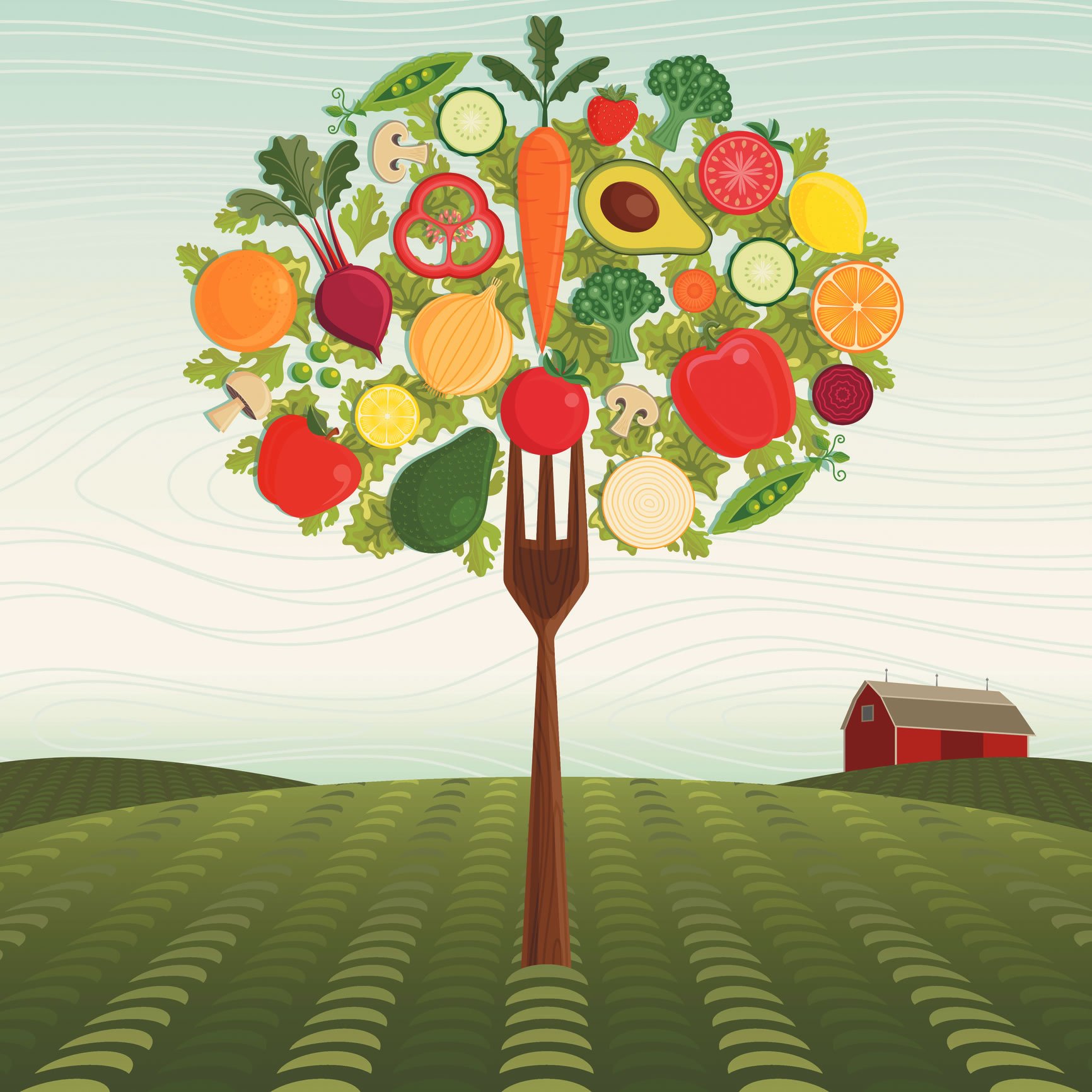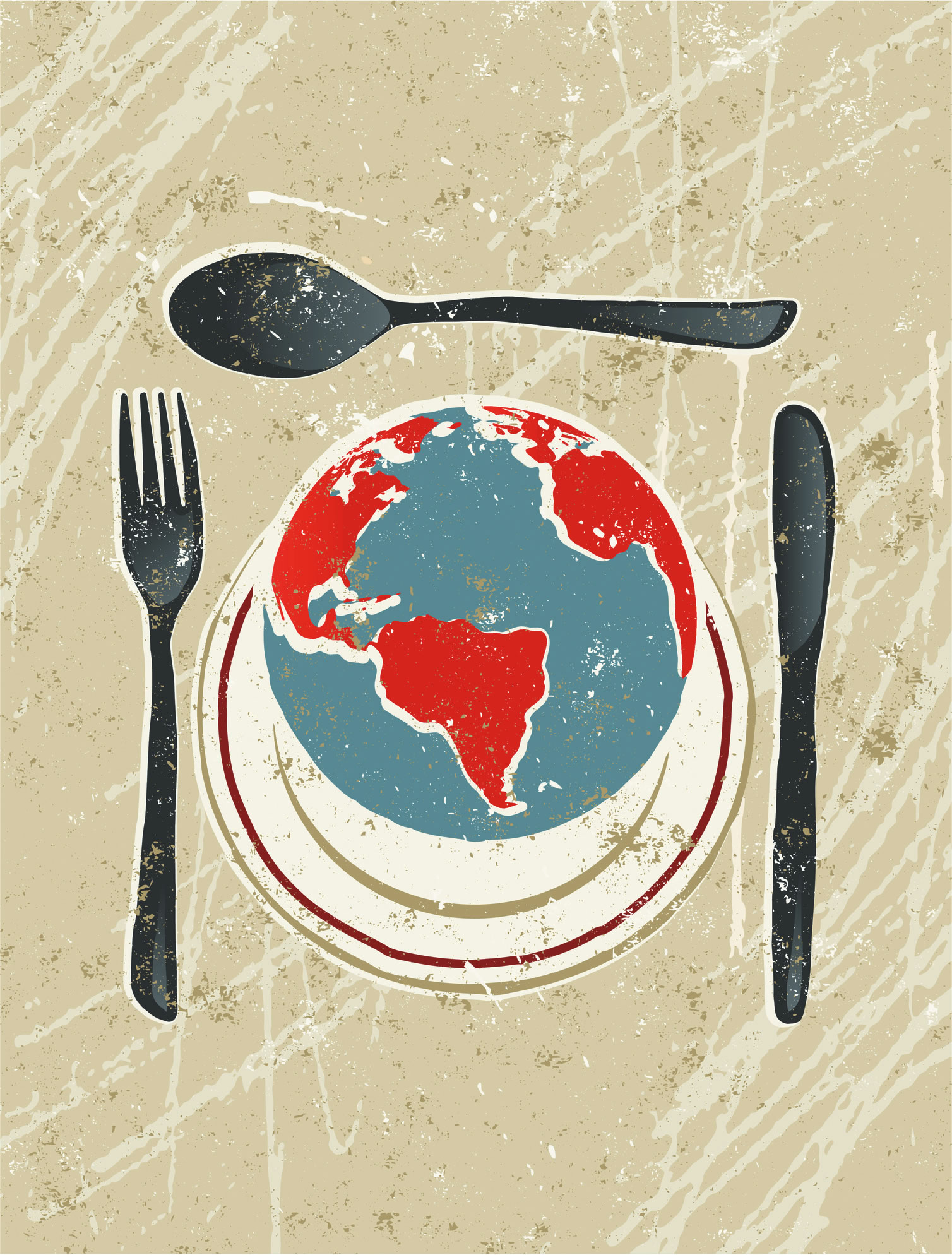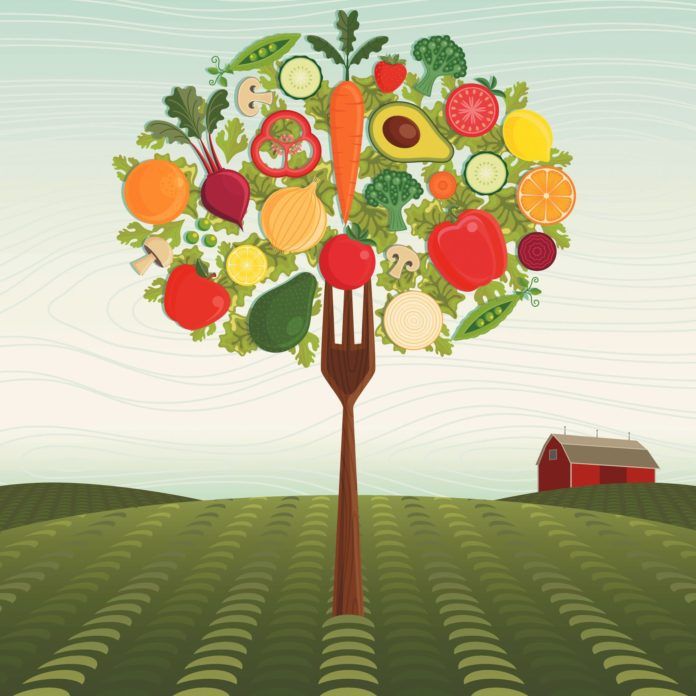Image © jammydesign | Getty Images

Food production impacts the environment, and interest in how food choices can reduce this impact is rising. According to the 2018 International Food Information Council Foundation food and health survey, 59 percent of consumers say it’s important to them that the foods they purchase and consume be produced sustainably, up from 50 percent in 2017. The latest research, including research from Tufts, indicates that a more plant-based diet is a more sustainable, environmentally-friendly diet.
The Food System and the Environment: According to a 2015 report from the Institute of Medicine’s Committee on a Framework for Assessing the Health, Environmental, and Social Effects of the Food System, the growing industrialization of the food system over the last fifty years has produced a dramatic effect on the environment. Larger, more intensive, less diverse farms have substantially increased food production, but with consequences, including increased pollution, a rise in the use of contaminants like nitrogen and pesticides, and depletion of natural resources, such as soil and water. “There are many ways that our food system impacts the environment,” says Christian Peters, PhD, an associate professor at the Tufts’ Friedman School of Nutrition Science and Policy who focuses on sustainability science and food systems. He lists the top four concerns as follows:
-Energy Use. “A great deal of energy is used in the U.S. food system, which accounts for about 12 to 14 percent of total energy use,” says Peters. “There is so much mechanization in our food supply, from farms, food processing, transportation, and retail stores, and that takes energy.”
-Climate Change. On top of energy use, other issues, such as deforestation to make way for more farms, fertilizer production, and methane and nitrous oxide emissions, contribute to global warming. According to a 2016 systematic review in PLoS One, agriculture is responsible for up to 30 percent of total greenhouse gas emissions.
-Land Use. “Over 50 percent of the land in the U.S. is used for some sort of agriculture,” says Peters. According to the PLoS One review, this intensity of agriculture exacerbates climate change, drives biodiversity loss, degrades soils, and threatens water resources.
-Water Use. It’s the same scenario for water, according to Peters, who reports that 70 percent of the world’s water withdrawals go for agriculture, which endangers supplies of water needed for human health, as well as a bio-diverse planet.
Shift to Plants: An increasing body of evidence suggests that dietary patterns higher in plant-based foods and lower in animal-based foods have environmental benefits. An August 2018 modelling study by Timothy S. Griffin, PhD, director of Tufts’ Agriculture, Food and Environment program, and colleagues, published in The Lancet, Planetary Health, found that a healthy vegetarian diet (which includes eggs and dairy, but no other animal products) had a 42 to 84 percent lower burden on the environment than two other recommended dietary patterns (the healthy U.S. style or healthy Mediterranean-style patterns).
“Livestock account for the largest share of the human diet’s carbon footprint, due to the environmental impact of feed crop production,” says Peters, who adds that livestock also emit methane from burping, and produce manure—both serious greenhouse gas contributors. “Plant-based diets generally require less land and water,” says Peters. “It’s quite clear that shifting to a more plant-based diet lowers your carbon footprint.”
Since plant-based dietary patterns are also associated with positive health impacts, protecting the health of the planet can go hand-in-hand with improving personal health.

Follow these tips for dietary choices that can help lower the environmental impact of food production.
-Eat More Plants, Fewer Animals. This is the most important step you can make, according to Peters. Vegetarians and vegans have the lowest carbon footprint, but even cutting back on red meat and poultry can help. Choose more meatless meals, and shift to thinking of meat as a seasoning (not the main event) in dishes like stews, casseroles, and stir-fries.
-Power Up on Legumes. Peters suggests including more of these protein-rich foods, such as beans, lentils, and peas, because they can replace meat on the plate and they provide natural fertilizer to the soil through nitrogen fixing.
-Trim Food Waste. About 30 to 40 percent of the U.S. food supply is wasted, which has multiple impacts on the planet. Land, water, energy, and synthetic inputs (fertilizer, pesticides) are used to produce food that will never be consumed. And foods that go to landfills create greenhouse gas emissions.
-Eat More Whole Foods. Peters notes that highly processed foods require greater energy due to multiple processing steps, packaging, and transportation. Choose whole, minimally processed foodswhole grains, legumes, vegetables, and fruitsmost of the time.






















Thank you for spreading this important information. You could add more about the proven health benefits, and psychological effects of vegan. I could write an article.
This is very interesting and important. I will heed most of this article. Thank you.
Is Christian Peters, PhD a Seventh Day Adventist? The Lancet-EAT Commission was a ludicrous farce.
Perhaps overpopulation by humans causes more problems than the ‘methane and manure’ from cattle.
And what about the Tsiame (?) of Bolivia who eat meat and have the world’s best coronary arteries.
I am suspicious of veggies and vegans who don’t declare their religious affiliations or funding.